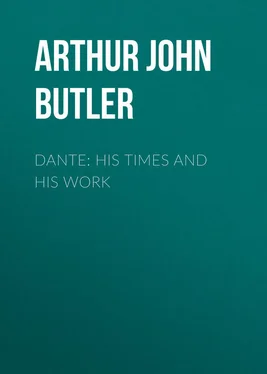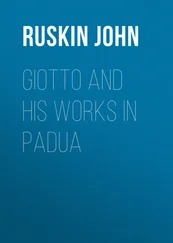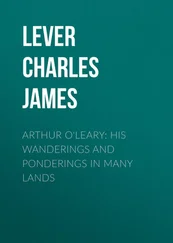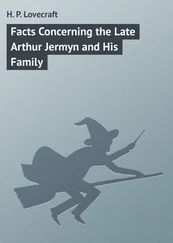Arthur Butler - Dante - His Times and His Work
Здесь есть возможность читать онлайн «Arthur Butler - Dante - His Times and His Work» — ознакомительный отрывок электронной книги совершенно бесплатно, а после прочтения отрывка купить полную версию. В некоторых случаях можно слушать аудио, скачать через торрент в формате fb2 и присутствует краткое содержание. Жанр: foreign_antique, foreign_prose, на английском языке. Описание произведения, (предисловие) а так же отзывы посетителей доступны на портале библиотеки ЛибКат.
- Название:Dante: His Times and His Work
- Автор:
- Жанр:
- Год:неизвестен
- ISBN:нет данных
- Рейтинг книги:3 / 5. Голосов: 1
-
Избранное:Добавить в избранное
- Отзывы:
-
Ваша оценка:
- 60
- 1
- 2
- 3
- 4
- 5
Dante: His Times and His Work: краткое содержание, описание и аннотация
Предлагаем к чтению аннотацию, описание, краткое содержание или предисловие (зависит от того, что написал сам автор книги «Dante: His Times and His Work»). Если вы не нашли необходимую информацию о книге — напишите в комментариях, мы постараемся отыскать её.
Dante: His Times and His Work — читать онлайн ознакомительный отрывок
Ниже представлен текст книги, разбитый по страницам. Система сохранения места последней прочитанной страницы, позволяет с удобством читать онлайн бесплатно книгу «Dante: His Times and His Work», без необходимости каждый раз заново искать на чём Вы остановились. Поставьте закладку, и сможете в любой момент перейти на страницу, на которой закончили чтение.
Интервал:
Закладка:
At his death, without issue, in 1055, he was succeeded by the son of his sister, who had married Azzo II. of Este. This Welf IV. fought on the side of Henry IV., against the revolted Saxons at the Unstrut, but soon rebelled himself. He became for a time the husband of the “great Countess” Matilda of Tuscany. Through him and his son Henry, “the Black,” the line was maintained; and though during the period at which we have arrived the head of the family for several generations bore the name of Henry, it is usually spoken of as “the house of the Welfs,” 9and the name is borne by some member of the family at most times. At the accession of Lothar II. the head of the house was Henry, surnamed “the Proud.” With him the new emperor at once made close alliance, giving him his daughter Gertrude in marriage. Henry’s sister Judith was already married to Frederick of Suabia, but he sided with his father-in-law, and a struggle began which lasted for ten years, and in which the Hohenstaufen brothers had not entirely the worst of it. Conrad was actually anointed at Monza as King of Italy; but in the end, through the intervention of St. Bernard, peace was made, and lasted during the few remaining months of Lothar’s life. At his death in 1137 Conrad was elected. His first act was to take the duchy of Bavaria from Henry, and bestow it on Leopold, the Marquis of Austria, his own half-brother, and whole brother to Bishop Otto, the historian. Henry died very soon, leaving a young son, afterwards known as Henry “the lion,” and a brother, Welf, who at once took up the quarrel on behalf of his nephew. He beat Leopold; but when, emboldened by this success, he proceeded to attack the Emperor, who was besieging the castle of Weinsberg, in Franconia, he suffered a severe defeat. At this battle we are told the cries of the contending sides were “Welf!” and “Waiblingen!” Why the name of an obscure fortress should have been used as a battle-cry for the mighty house of Hohenstaufen, we shall probably never know; it may be that it was a chance selection as the password for the day. However that may be, the battle-cries of Weinsberg were destined to resound far into future ages. Modified to suit non-Teutonic lips, they became famous throughout the civilised world as the designations of the two parties in a struggle which divided Italy for centuries, and of which the last vibrations only died down, if indeed they have died down, in our own day.
Of all faction-wars which history records, this is the most complicated, the most difficult to analyse into distinct issues. The Guelfs have been considered the Church or Papal party; and no doubt there is some truth in this view. Indeed, there seems to have been some hereditary tradition of the kind dating from a much earlier generation; long, in fact, before the Ghibeline name had been heard of. When, as we have seen, Countess Matilda of Tuscany, the champion of Gregory VII., was looking out for a second husband, she fixed upon Welf of Bavaria, presumably the “dux Noricorum,” who, as Bishop Otto tells us, “in the war with the Emperor, destroyed the cities of Freising and Augsburg.” Their union did not last long, for Matilda seems to have been hard to please in the matter of husbands; but the fact of his selection looks as if he had been a persona grata with the Papal See. It is somewhat significant, too, that Machiavelli regards the contest between Henry IV. and the Papacy as having been “the seed of the Guelf and Ghibeline races, whereby when the inundation of foreigners ceased, Italy was torn with intestine wars.” Yet we may shrewdly suspect that it was not so much any special devotion to the Church, as the thwarted ambition of a powerful house, which made the Welfs to be a thorn in the side first of the Franconian, then of the Suabian Emperors. 10At any rate, when a representative of the family, in the person of Otto IV., at last reached “the dread summit of Cæsarean power,” the very Pope, whose support had placed him on the throne, found himself within little more than a year under the familiar necessity of excommunicating the temporal head of Christendom. Still, in Italy no doubt the Guelfs, politically at any rate, held by the Church, while the Ghibelines had the reputation of being, as a party, at least tainted with what we should now call materialism. It will be remembered that among the sinners in this kind, who occupy the burning tombs within the walls of the city of Dis, Dante places both the Emperor Frederick II., the head of Ghibelinism, and Farinata degli Uberti, the vigorous leader of the party in Tuscany, while the only Guelf who appears there is one who probably was a very loose adherent to his own faction.
Less justified, it would seem, is the idea that the Guelfs were specially the patriotic party in Italy. No doubt the Popes at one time tried to pose as the defenders of Italian liberties against German tyrants, and some modern historians, forgetting the mediæval conception of the Empire, have been inclined to accept this view. But when it suited his purpose, the Pope was ready enough to support an “anti-Cæsar” who was no less a German, or even to call in a French invader. The truth is that at that time (and for many centuries afterwards), no conception of “Italy” as a nation had entered into men’s minds. We do not always realise that until the year 1870, the territory, well enough defined by Nature, which forms the modern kingdom of Italy, had never, except indeed as part of a far wider Empire, owned the rule of a single sovereign. Patriotism hardly extended beyond the walls of a man’s own city. Even Dante feels that residence in Lucca, Bologna, or Verona is an exile as complete as any, and that his only patria is Florence, though it may be safely said that to him, if to any living man, the idea of an Italian nation had presented itself.
The one argument which we can find to support this view lies in the fact that while the chief Guelf names are those of burgher families, many of the leading Ghibeline houses were undoubtedly of German origin. At Florence the Uberti, at Bologna the Lamberti, show their descent in their names. Villani tells us that the Emperor Otto I. delighted in Florence, “and when he returned to Germany certain of his barons remained there and became citizens.” The two families just mentioned are specified. So far, then, the Guelfs may be regarded as representing native civic liberties against an alien feudal nobility, and the struggle between the two factions will fall into line with that which at a somewhat later date went on in Germany between the traders of the cities and the “robber-barons” of the country. In this aspect we may see the full meaning of Dante’s continual allusion to the sin of avarice, under the image of the “wolf;” an allusion, again, which the original name whence the Guelf party took its appellation would specially point.
How and when the names first appeared in Italy we do not know. The first manifestation of resistance on the part of the cities to the Imperial control was given when Milan withstood Frederick Barbarossa – in defence, it may be noted, of its own right to oppress its weaker neighbours; but during the war which followed, and which was terminated by Frederick’s defeat at Legnano, the head of the Welfs, Henry the Lion, was for most of the time fighting on the Imperial side, and though he deserted Frederick at the last, he does not seem to have given any active help to the Lombard League. Yet it may well be that in his defection we have to see a stage in the transition from Welf to Guelf. It is, however, not in Lombardy, but in Tuscany, that the names of Guelf and Ghibeline, as recognised party designations, first appear. Machiavelli says – perhaps by a confusion with the Black and White factions, of whom we shall hear later – that they were first heard in Pistoia; but however this may be, they would seem to have been definitely accepted by 1215, to which year Villani assigns their introduction into Florence.
Читать дальшеИнтервал:
Закладка:
Похожие книги на «Dante: His Times and His Work»
Представляем Вашему вниманию похожие книги на «Dante: His Times and His Work» списком для выбора. Мы отобрали схожую по названию и смыслу литературу в надежде предоставить читателям больше вариантов отыскать новые, интересные, ещё непрочитанные произведения.
Обсуждение, отзывы о книге «Dante: His Times and His Work» и просто собственные мнения читателей. Оставьте ваши комментарии, напишите, что Вы думаете о произведении, его смысле или главных героях. Укажите что конкретно понравилось, а что нет, и почему Вы так считаете.




![William Frith - John Leech, His Life and Work. Vol. 1 [of 2]](/books/747171/william-frith-john-leech-his-life-and-work-vol-thumb.webp)
![William Frith - John Leech, His Life and Work, Vol. 2 [of 2]](/books/748201/william-frith-john-leech-his-life-and-work-vol-thumb.webp)





